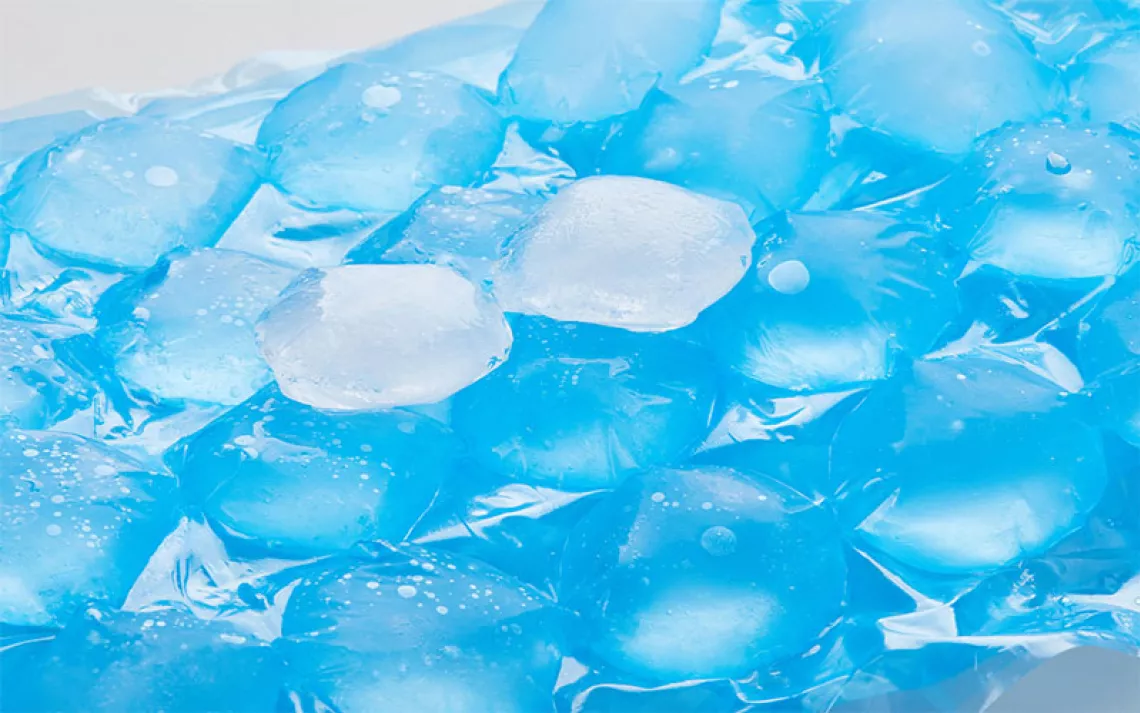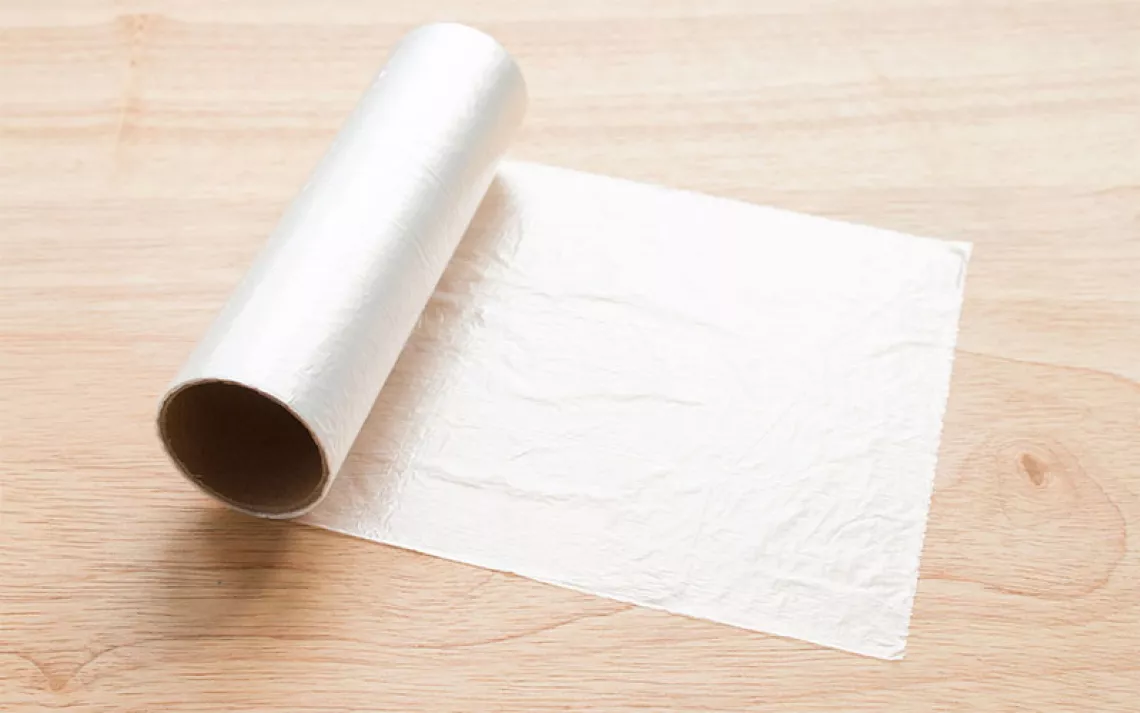10 Sunscreens That Comply With Proposed New FDA Safety Rules
Clean, nontoxic sunscreen is having its day in the sun
It may be vital for protecting ourselves from the hot sun, but in recent years sunscreen has found its way into the hot seat. Thanks to a heating planet and trashed ozone layer, sunscreen habits have evolved in recent decades—no longer a mere beach-bag accoutrement, it’s now stuff we slather on repeatedly throughout each day. Which may be why consumers and regulators have been increasingly raising questions about sunscreen’s photoprotective chemicals and how they interact with our skin.
Because sunscreen’s active chemicals were approved decades ago—before anyone suspected they could be getting absorbed into our bloodstream and interacting with hormones—they haven’t traditionally been subject to much safety testing. In May, however, FDA researchers revealed the results of a small clinical trial in the medical journal JAMA. These findings showed that UV-blocking chemicals including oxybenzone, avobenzone, ecamsule, and octocrylene can indeed be detected in our blood after sunscreen application.
Based on this testing, the FDA is asking US sunscreen makers to submit additional data measuring the ways in which ingredients absorb into the bloodstream. The agency has also proposed further updates on sunscreen safety: These include raising the maximum sun-protection factor on sunscreen labels from SPF 50+ to SPF 60+ and requiring sunscreens with SPF values of 15 and higher to offer broad-spectrum protection against both ultraviolet A radiation—which accounts for 90 percent of UV radiation, penetrates clouds and glass year-round, and causes free radical generation and thus contributes to skin's aging—and ultraviolet B radiation, which is more culpable when it comes to sunburns and cancer. (Mounting evidence shows that UVA may damage DNA more than previously thought, which is driving these specific new recommendations—to ensure you’re fully protected, seek out labels boasting “UVA/UVB protection.") New FDA proposals also require manufacturers to include a list of active ingredients on the front of sunscreens' packaging and suggest that sunscreen–insect repellent combo products are not safe and effective.
These new FDA standards are expected to be finalized in November. At that point, new sunscreen formulations will have a year to get compliant.
Do not panic, and please, keep vigilantly protecting yourself from the sun—there’s presently zero evidence that these chemicals are doing anything harmful once they get inside our bodies. “It’s important to remember that at this time, there is no evidence sunscreens currently on the shelves have negative long-term impacts on human health," says Dr. Kevin McMullen, a San Francisco–based dermatologist. "However, they can protect you from cancer and aging caused by radiation from the sun. People sometimes forget the sun is a star, fueled by nuclear fusion, that causes radiation burns and cancer to human skin. The best thing to do is protect yourself by wearing sun-protective clothing, avoiding direct sun from 10 A.M. to 2 P.M., wearing a broad-spectrum sunscreen every day, and reapplying it every 90 to 120 minutes while outdoors.”
The FDA has cleared two common physical photoprotective ingredients—zinc oxide and titanium dioxide—as safe and effective. In advance of the new rules becoming official, we tried out several sunscreens that are already compliant with FDA standards. From there, we looked for clean, relatively green, reef-safe options (read more about many sunscreens' effects on coral reefs here). So get on out there and enjoy that summer sun, but play it smart with help from shades, hats, and the following 10 sunscreen brands.
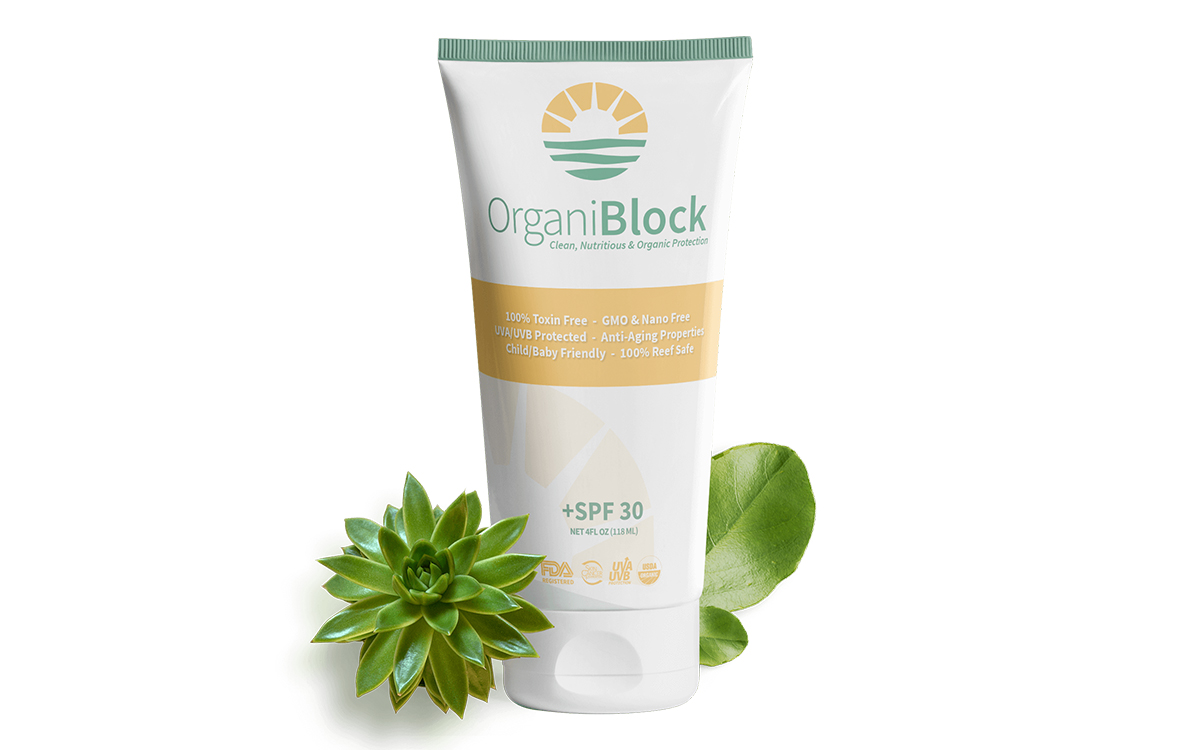
Formulated with certified-organic oils of jojoba, avocado, and pomegranate seed as well as food-grade zinc oxide, OrganiBlock ($42 for 4 fl. oz.) is a brand-new protector that offers broad-spectrum protection. This SPF 30, antioxidant-rich product is luxuriously fragrant and thick, yet absorbs like butter.
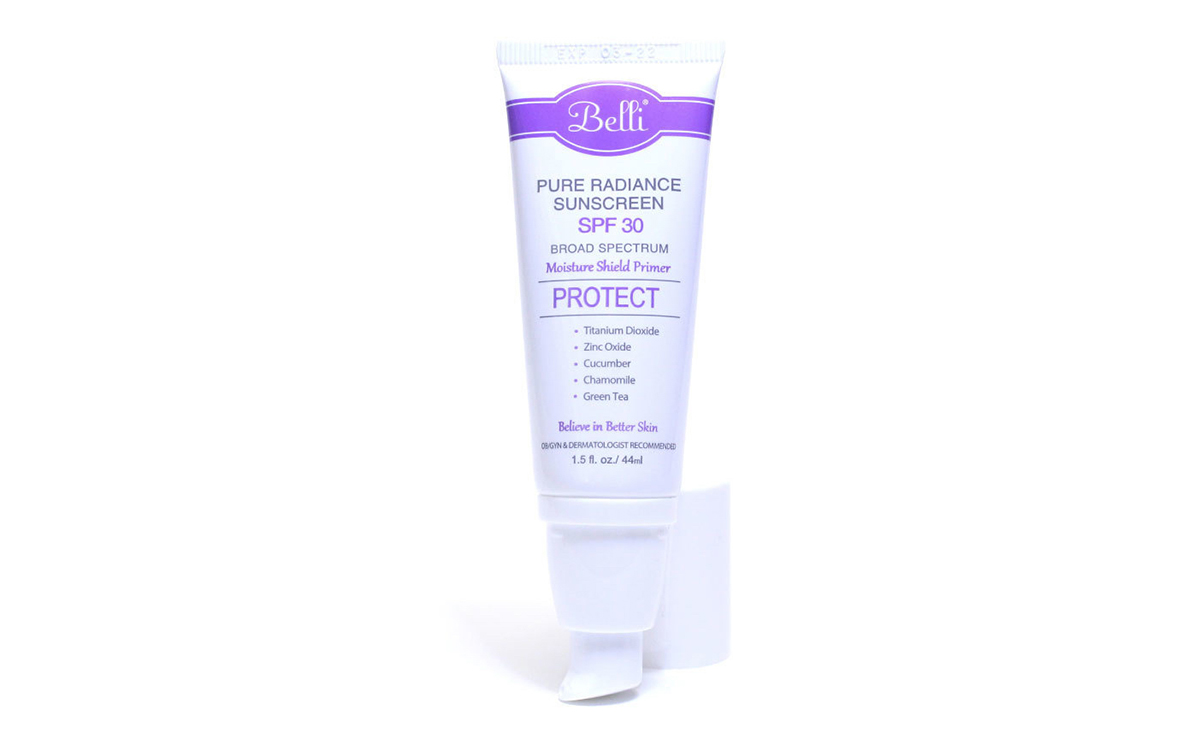 Prefer a hint of tint in your sun shield? This summer, Belli Skincare unveiled the mineral-based Pure Radiance Sunscreen SPF 30 ($24 for 1.5 fl. oz.). Rather than chemical sunscreens, which absorb into the skin and then absorb UV rays, mineral sunscreens use zinc oxide and titanium dioxide as physical blockers that sit atop the skin, bouncing off rays at the pass. This broad-spectrum protector contains cucumber, chamomile, and green tea, and eschews animal testing, artificial dyes, phthalates, and paraben preservatives.
Prefer a hint of tint in your sun shield? This summer, Belli Skincare unveiled the mineral-based Pure Radiance Sunscreen SPF 30 ($24 for 1.5 fl. oz.). Rather than chemical sunscreens, which absorb into the skin and then absorb UV rays, mineral sunscreens use zinc oxide and titanium dioxide as physical blockers that sit atop the skin, bouncing off rays at the pass. This broad-spectrum protector contains cucumber, chamomile, and green tea, and eschews animal testing, artificial dyes, phthalates, and paraben preservatives.
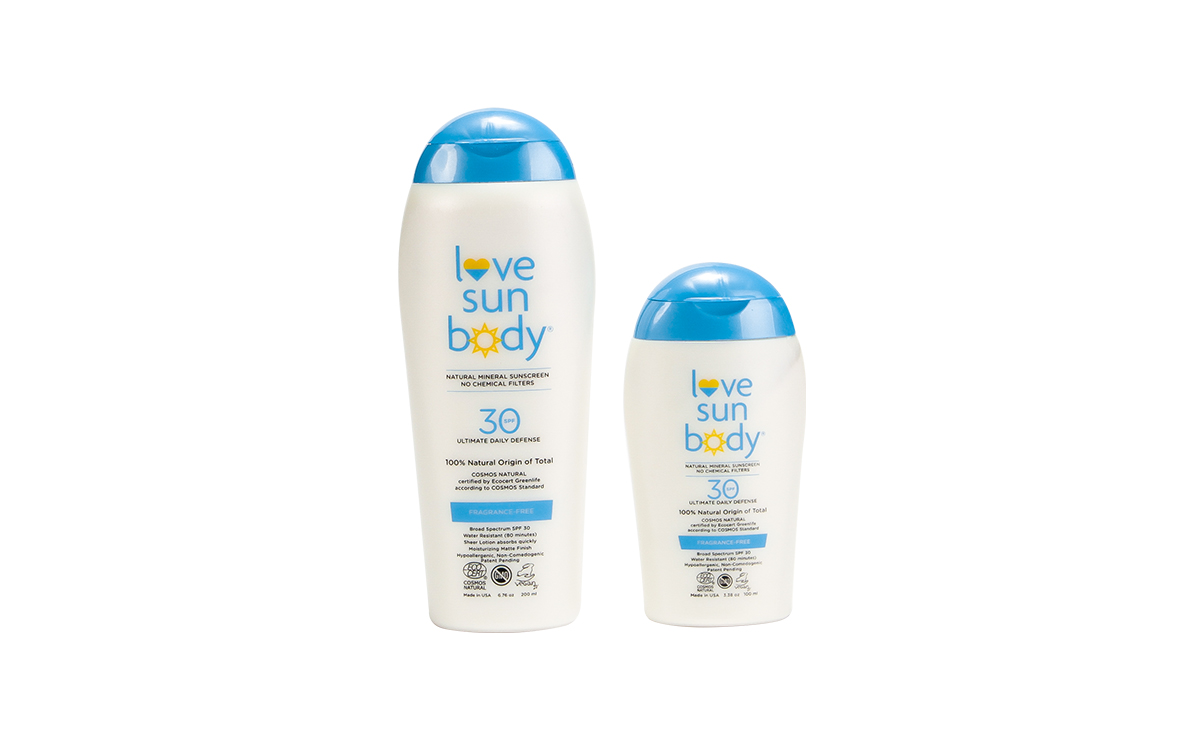
Meeting new FDA proposals, as well as even-tougher European sunscreen regulations, Love Sun Body ($32 for 6.76 fl. oz.) is available in SPF 30 and SPF 50 and in fragrance-free and lightly vanilla-scented versions. This stuff goes on thick and takes a minute to absorb, but it contains zero oxybenzone, the longtime sunscreen agent that’s come under fire in recent years for harming coral reefs (Hawaii has banned sunscreens that contain oxybenzone altogether). Beyond being reef-safe, this mineral plant-based brand boasts organic certifications from COSMOS, EcoCert, and the Leaping Bunny standard, which denotes vegan, cruelty-free cosmetics. Plus, its formula is hypoallergenic and water- and sweat-resistant for up to 80 minutes.
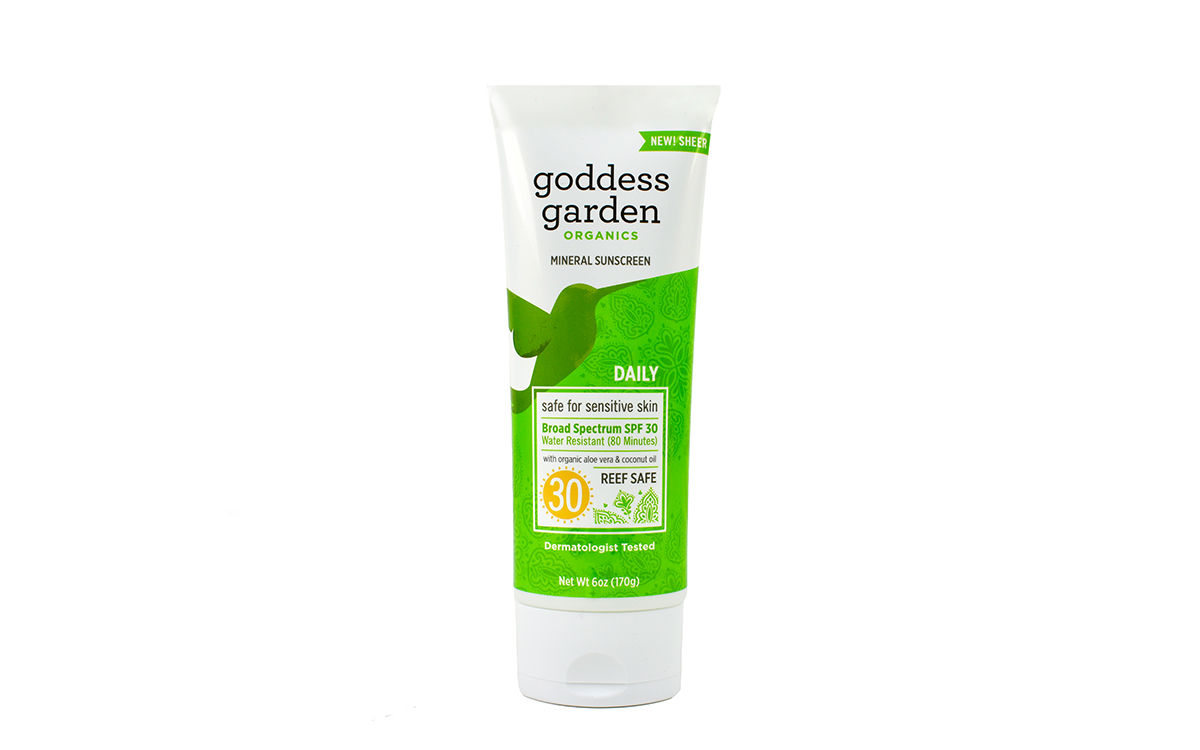
Developed by a mother whose baby suffered from skin allergies, Goddess Garden Mineral Sunscreen ($18 for 6 oz. and available in formulations for babies, kids, daily use, and sports) is reef-safe and powered by zinc oxide and plants. As icing on the (sheer, sensitive skin-friendly) cake, Goddess Garden is a B Corporation, and founder Nova Covington established the conservation nonprofit Protect Our Mother to help protect coral reefs and ocean mammals.
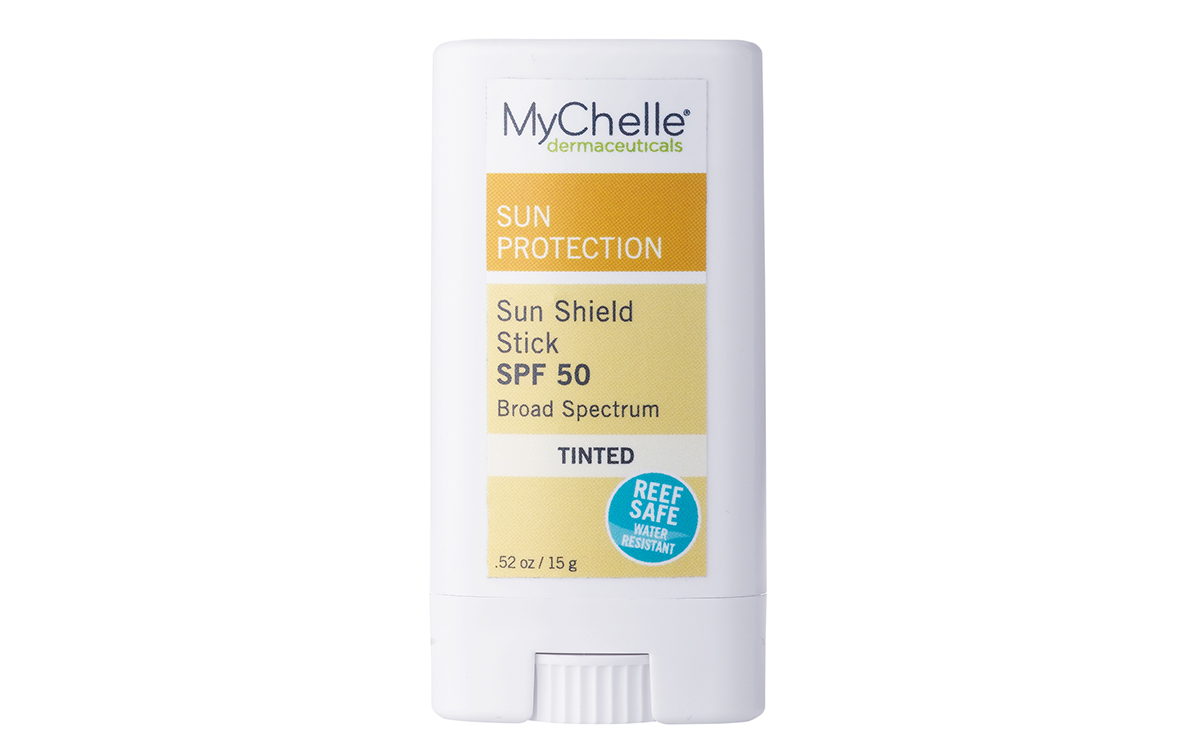 Formulated with zinc oxide, coconut oil, and shea butter, MyChelle Dermaceuticals’ Sun Shield Tinted Stick SPF 50 ($12.50 for 15 grams) is a mineral-based, water-resistant, broad-spectrum protector that glides on smoothly and leaves skin soft, thanks to avocado, jojoba, vitamin E oils, and cocoa seed butter. A solid on-the-go option, it's also reef-safe and free from sulfates, petroleum, parabens, phthalates, and artificial colors and fragrances.
Formulated with zinc oxide, coconut oil, and shea butter, MyChelle Dermaceuticals’ Sun Shield Tinted Stick SPF 50 ($12.50 for 15 grams) is a mineral-based, water-resistant, broad-spectrum protector that glides on smoothly and leaves skin soft, thanks to avocado, jojoba, vitamin E oils, and cocoa seed butter. A solid on-the-go option, it's also reef-safe and free from sulfates, petroleum, parabens, phthalates, and artificial colors and fragrances.
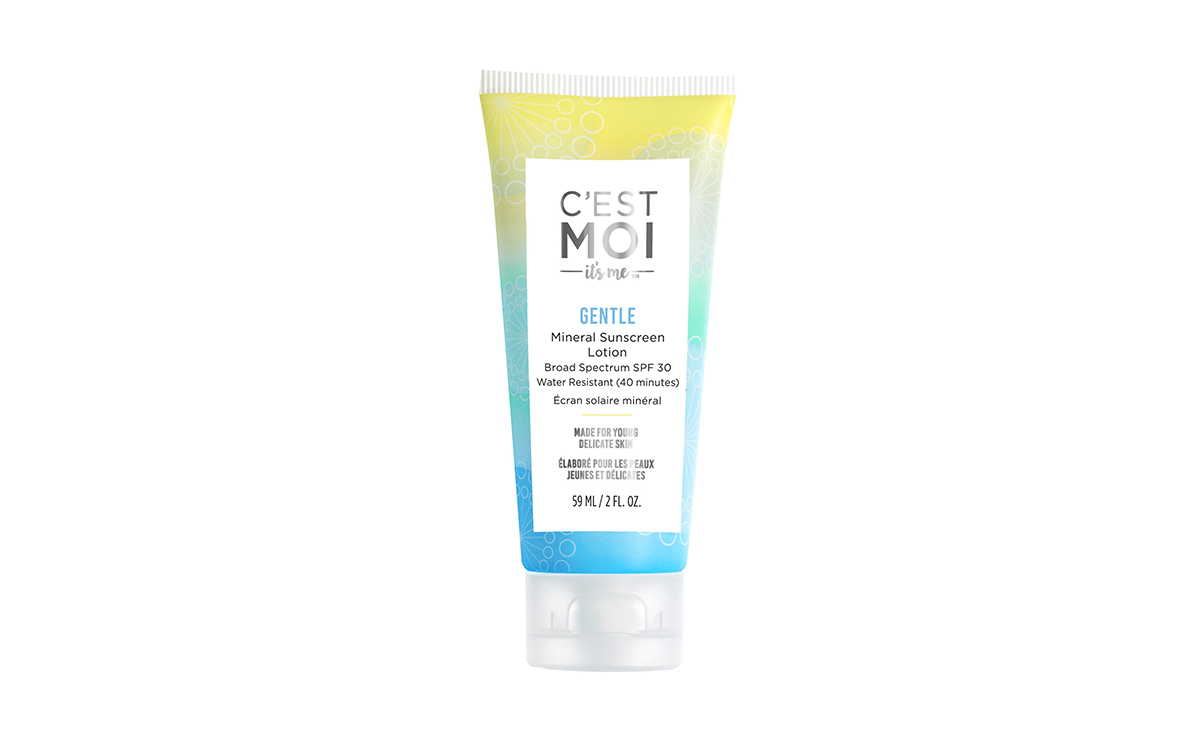 Formulated for young, delicate facial skin, Gentle Mineral Sunscreen Lotion SPF 30 ($15 for 2 fl. oz.) from C’est Moi soothes and protects with help from ingredients like zinc oxide, organic aloe, shea butter, cocoa butter, and extracts of strawberry, kiwi, and apple. It’s light, fragrance-free, and can be used as a daily moisturizer—applied beneath foundation or concealer, it shouldn’t clog pores.
Formulated for young, delicate facial skin, Gentle Mineral Sunscreen Lotion SPF 30 ($15 for 2 fl. oz.) from C’est Moi soothes and protects with help from ingredients like zinc oxide, organic aloe, shea butter, cocoa butter, and extracts of strawberry, kiwi, and apple. It’s light, fragrance-free, and can be used as a daily moisturizer—applied beneath foundation or concealer, it shouldn’t clog pores.
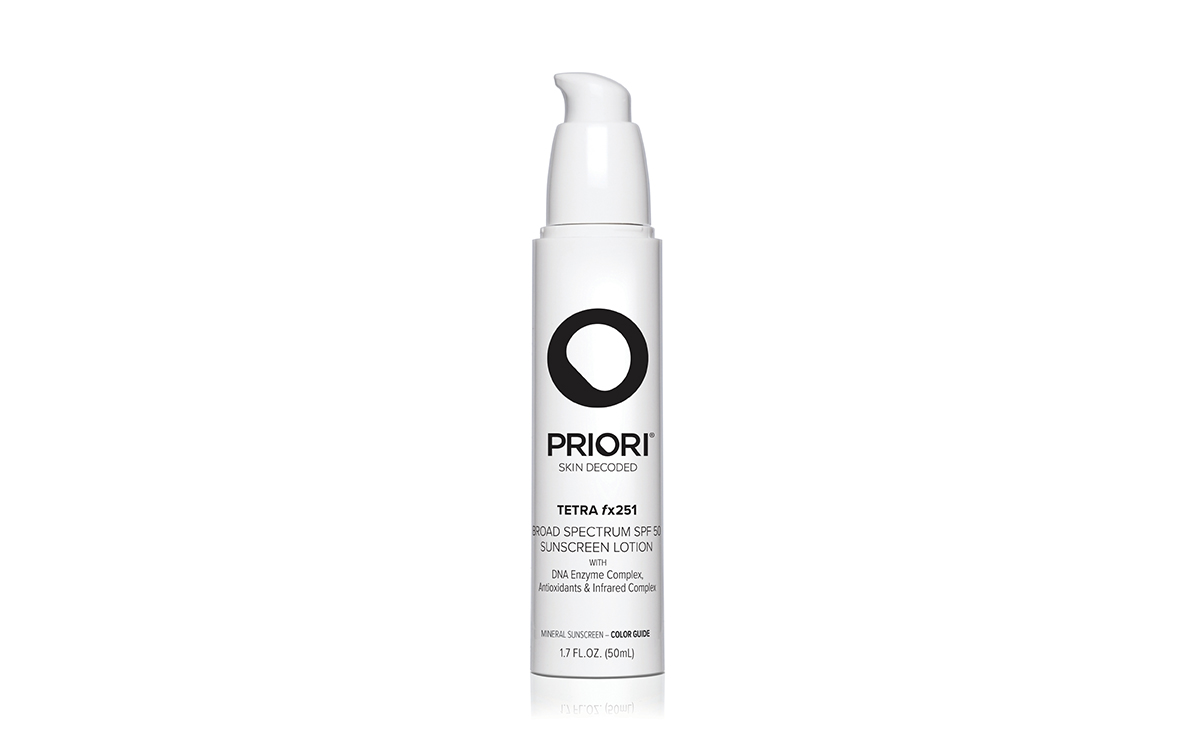 Designed to shield skin from broad-spectrum UV radiation as well as blue light from electronic devices, Priori Skincare’s Tetra fx 251 SPF 50 ($90 for 1.7 fl. oz.) features zinc oxide and titanium dioxide, free-radical-fighting antioxidants, and DNA enzymes that purport to neutralize existing damage. Available in two finishes (tinted and universal), this high-tech formula applies evenly and blends into any complexion.
Designed to shield skin from broad-spectrum UV radiation as well as blue light from electronic devices, Priori Skincare’s Tetra fx 251 SPF 50 ($90 for 1.7 fl. oz.) features zinc oxide and titanium dioxide, free-radical-fighting antioxidants, and DNA enzymes that purport to neutralize existing damage. Available in two finishes (tinted and universal), this high-tech formula applies evenly and blends into any complexion.
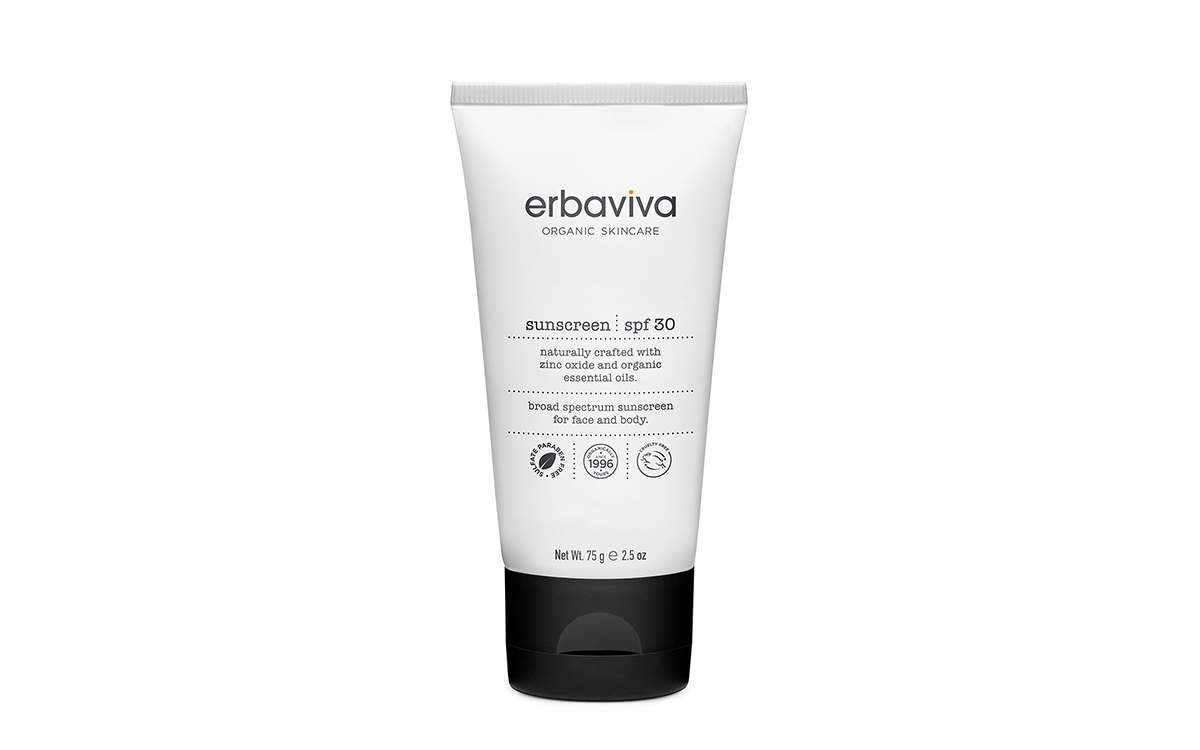 Crafted with aloe and oils from sunflower and jojoba and infused with chamomile and lavender essential oils, Erbaviva Organic Skincare’s SPF 30 Sunscreen ($23 for 2.5 fl. oz.) physically shields skin from broad-spectrum UV rays with non-nano zinc oxide. For a reef-friendly choice, it’s remarkably fast-absorbing and residue-free. It’s also free of sulfates and has never been tested on animals.
Crafted with aloe and oils from sunflower and jojoba and infused with chamomile and lavender essential oils, Erbaviva Organic Skincare’s SPF 30 Sunscreen ($23 for 2.5 fl. oz.) physically shields skin from broad-spectrum UV rays with non-nano zinc oxide. For a reef-friendly choice, it’s remarkably fast-absorbing and residue-free. It’s also free of sulfates and has never been tested on animals.
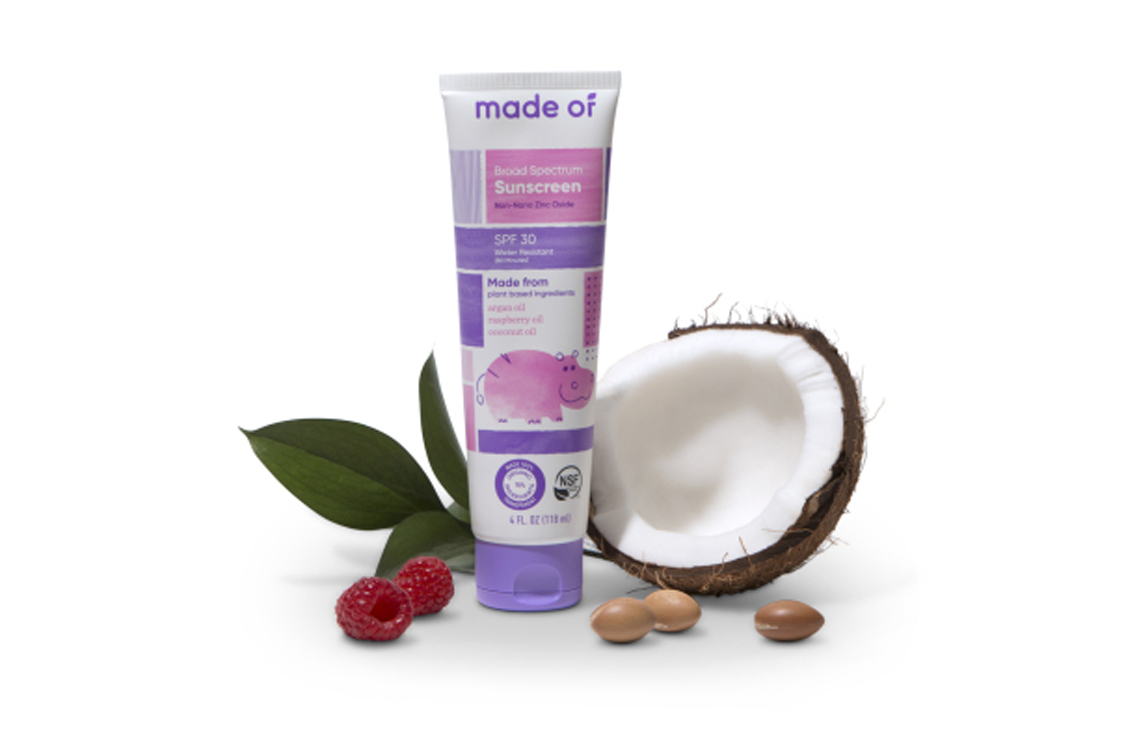
Designed to protect the tiniest sun worshippers from head to toe, Organic Baby Sunscreen ($17 for 4 fl. oz.) from baby skincare brand Made Of uses non-nano zinc oxide to protect tots from UVA and UVB rays. Organic argan and coconut oils round out this reef-safe, water-resistant formula, which should leave no greasy residue on young ones’ skin.
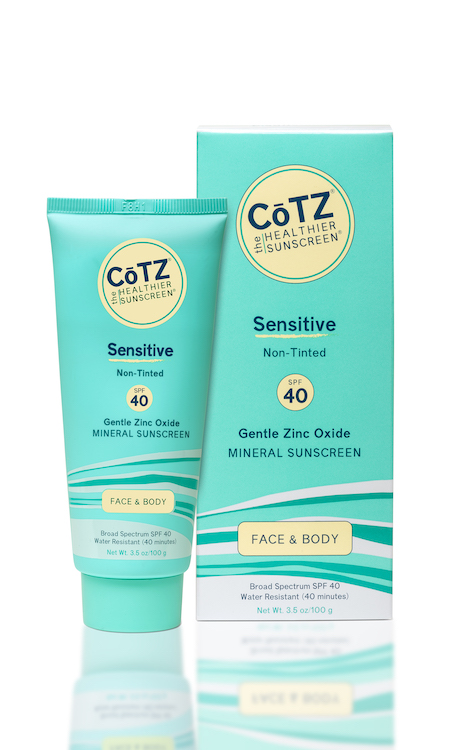
This stuff is as straightforward as sunscreens come—CōTZ stands for "Contains Only Titanium and Zinc," and the company's Gentle Zinc Oxide SPF 40 Mineral Sunscreen ($23 for 3.5 fl. oz.) is a plant-based, zinc-oxide-forward formula designed to protect and soothe sensitive and easily irritated skin. It contains zero synthetic ingredients, offers broad-spectrum protection, and leaves skin silky-smooth.
 The Magazine of The Sierra Club
The Magazine of The Sierra Club


